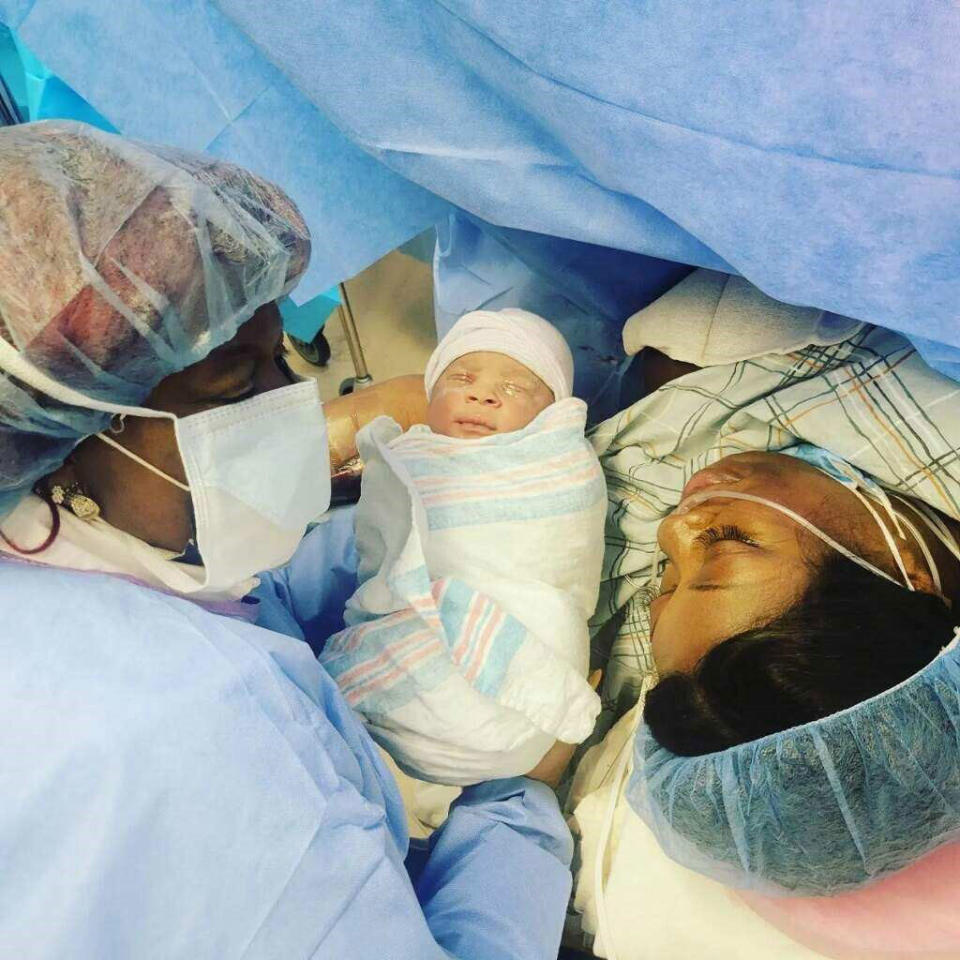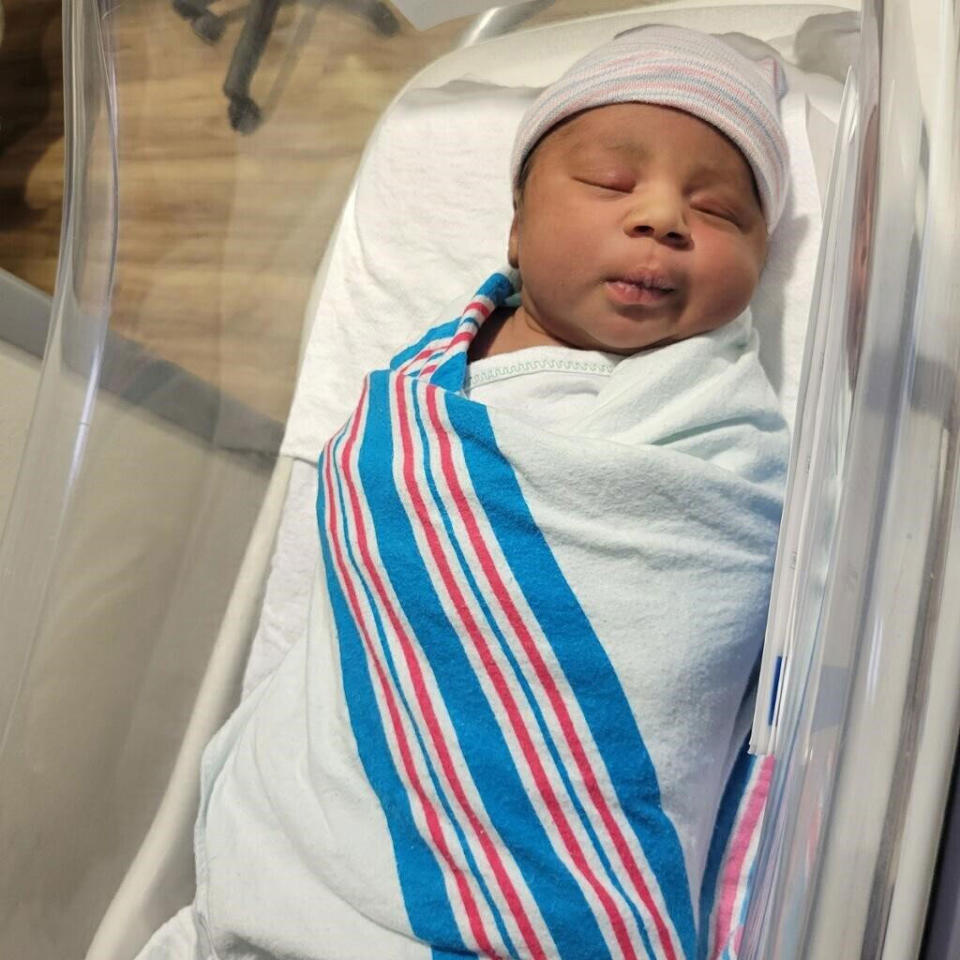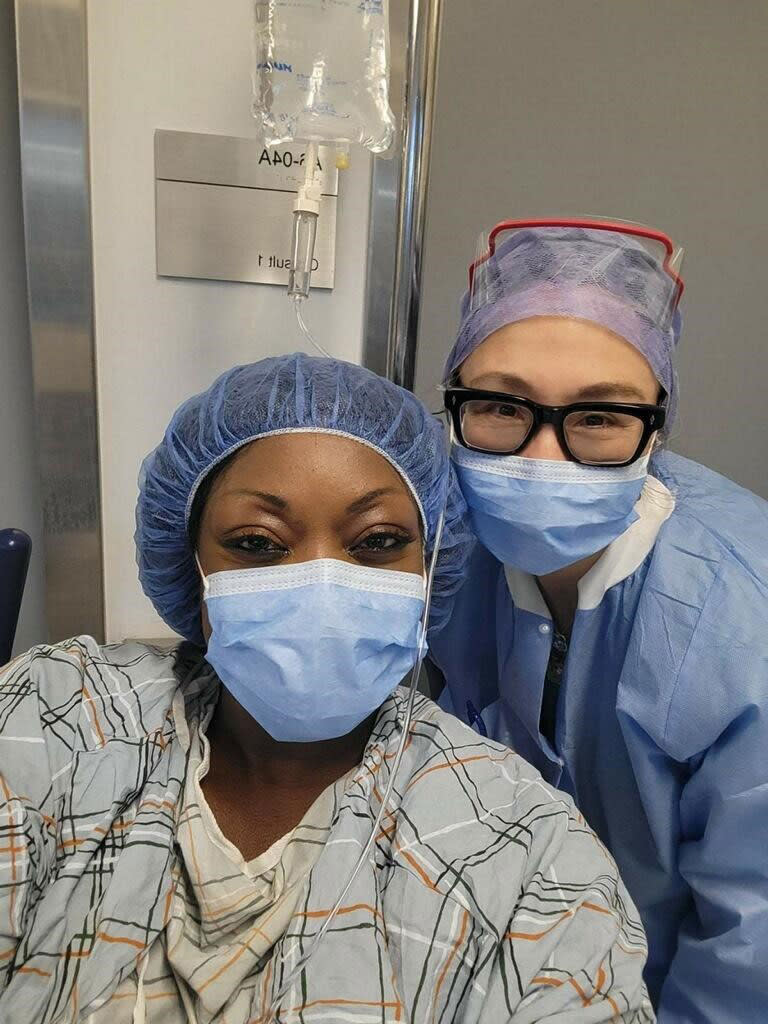Woman details fertility struggle due to 78 fibroids, endometriosis
Since high school, Shauna McDonald has had heavy, painful periods. She was diagnosed with uterine fibroids, and over the years, she’s undergone six surgeries to remove them. Between surgeries, she tried getting pregnant and went through two unsuccessful rounds of in-vitro fertilization (IVF).
“That takes a toll on your psyche, on your relationships,” McDonald, 41, of Stamford, Connecticut, told TODAY. “I didn’t really give up, but I was just tired and over it. I was just like, ‘Maybe I’m not supposed to be a mom,’ even though deep down I know I’m supposed to be a mother.”
After a period that wouldn’t stop in 2020, McDonald underwent surgery to have 78 fibroids removed, and her doctor encouraged her to try getting pregnant again.
“He said, 'You have to heal from this surgery, and you have three months to get pregnant because if you do not, the fibroids are going to come back,” she recalled. “I did my IVF, and on the first round I got pregnant. It was truly a blessing.”
Heavy periods, bowel obstruction, complex diagnosis
McDonald first got her period at 10, and they became heavy throughout high school. A doctor diagnosed her with fibroids, or noncancerous growths on or in the uterus, and in college she started taking birth control to manage her symptoms. Yet, it wasn’t enough to stop the excessive bleeding she experienced when menstruating.

“I still continued with having heavy bleeding into my 20s. I suffered with it, and I got a second opinion from my doctor, and that’s when I diagnosed with endometriosis at 27,” McDonald explained. “I was 30, going on 31 when I had the first surgery for my fibroids.”She underwent a myomectomy, a surgical procedure to remove fibroids. Then a few years later, her heavy periods returned.
“It’s a matter of it always resurfacing and returning and the bleeding gets better and then it gets worse,” she said. “Once it gets to a certain point that it’s worse, that’s when I will go back and have them removed.”
Every time, doctors would take out “multiple fibroids,” McDonald recalled. Then she underwent surgery for endometriosis after adhesions, or bands of scar tissue, infiltrated her bowel, bladder and ovaries. Doctors needed to remove 17 feet of her bowel. During recovery, she developed a bowel obstruction and needed to return to the operating room for an emergency surgery.
“In between those times, I did have trouble getting pregnant,” she said.
She tried IVF, but it never worked. Then in 2020, her period started and never stopped.
“I bled on day 10, on day 14 to the point where I said, ‘I need to call my doctor and tell him that I’m still bleeding,’” she said. “I had surgery in October 2020, and he removed 78 fibroids. That was the most that was ever removed from me, and my uterus was the size of a 16-week pregnancy. … I was stunned.”

That’s when her doctor, Dr. Charles Ascher-Walsh, told her to try getting pregnant after recovery. She did face complications in her recovery, including a condition called an ileus, when the bowel stops working after surgery.
“That was the hardest recovery I’ve ever had,” she said.
Fibroids
“Fibroids are noncancerous tumors of the uterine muscle wall,” Ascher-Walsh, division director for urogynecology in the department of obstetrics, gynecology and reproductive science at the Icahn School of Medicine at Mount Sinai, told TODAY. “They’re so common — over half of women get them — so they really can’t be considered abnormal.”
Doctors manage fibroids in various ways, including observation, medicine or surgery. For people without symptoms, doctors often just watch them. Medications, such as birth control, can help with heavy bleeding, though fibroids often continue growing, and that can change the treatment plan.
“They don’t tend to cause symptoms until they get large and cause symptoms through their sheer size,” Ascher-Walsh said. “They also obviously affect fertility, mostly by affecting that inside cavity of the endometrium,” aka the uterus lining.
They also can contribute to miscarriage and early delivery. Having both fibroids and endometriosis likely contributed to McDonald’s difficulty to become a mom.
“She had been trying to get pregnant for years and almost got to the point of giving up,” Ascher-Walsh said. “She had a more severe case. The first fibroids were diagnosed when she was very young, which is very uncommon.”

Ascher-Walsh advised talking to your doctor if you develop fibroid symptoms, which include:
Pelvic pain
Heavy periods
Frequent urination
Constipation or pain with bowel movements
Sometimes women are told they need to have a hysterectomy to treat their fibroids, which can be tough especially, if they hope to have children. Ascher-Walsh said in these cases, you might want a second opinion from a doctor who specializes in treating fibroids.
“There are almost always a variety of options (for treatment) and ... seeking out people who have a little more knowledge in the care of fibroids and not just a general OB-GYN tends to lead to getting more options,” he said. “A hysterectomy very often may be the way for some women not wanting to ever have to deal with fibroids again.”
Pregnancy and life as a mom
McDonald’s first trimester went smoothly, but during her second trimester, she was diagnosed with De Quervain tenosynovitis, an inflammation and pain occurring on the thumb-side of the wrist.
“It is the most painful thing,” she said.

Then she developed placenta accrete, which occurs when the placenta grows into the uterine wall. McDonald gave birth early on March 29, 2022.
“The baby’s fine. The risk is on the mother,” she said. “I believe I was 37 weeks and four days. … I didn’t want to deliver him earlier than that because I didn’t want him to have to be in the NICU.”
Her son, Nobel, is doing well, even after having a procedure because he had to tubes, called ureters, connected to one kidney. (Each kidney normally has one ureter going into it.)
McDonald feels anxious as a mom at times, but she knows her experiences have made her stronger.
“I actually manifested this baby,” she said. “I’m very resilient. And when I want something, I’m going to do it. This was much harder than anything else in life because fertility is something you cannot control.”

